| << Chapter < Page | Chapter >> Page > |
Bring old electricity accounts from your homes to school and discuss them. See how the amounts on the accounts vary from month to month, from winter to summer and from house to house.
Discuss suggestions on how to economize on the use of electricity at home. Share your ideas with you parents when you are at home.
How to save electricity
Examine the pictures below. Indicate where you agree by placing a tick in the appropriate place and indicate where you disagree by placing a cross in the appropriate place.
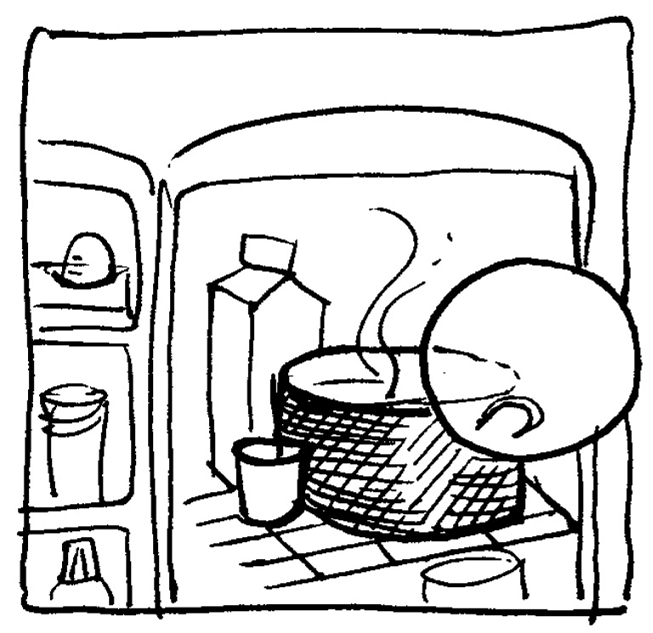
Do not put warm food or fluids in the fridge.
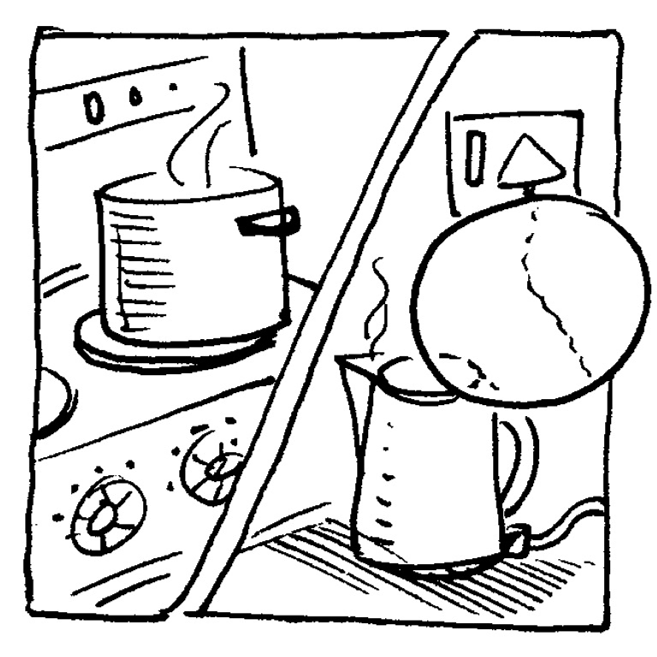
Do not boil water in a pot on the stove – rather use the kettle.
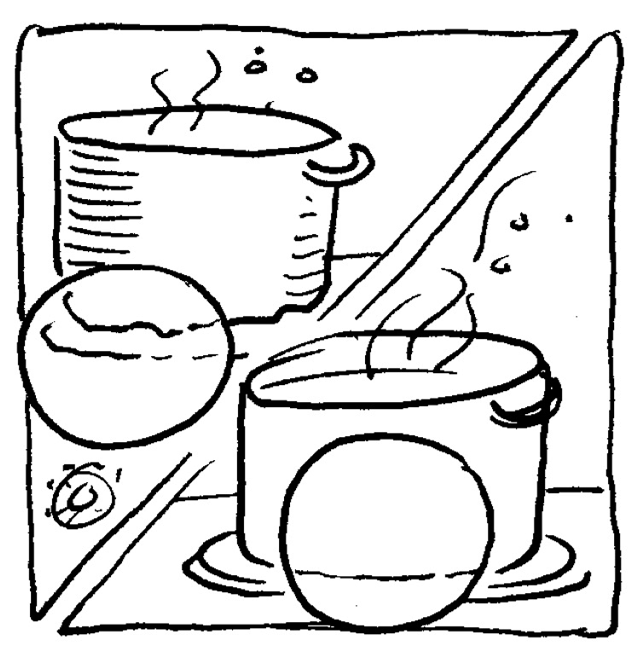
Do not use a pot with an uneven bottom, because it requires more heat.
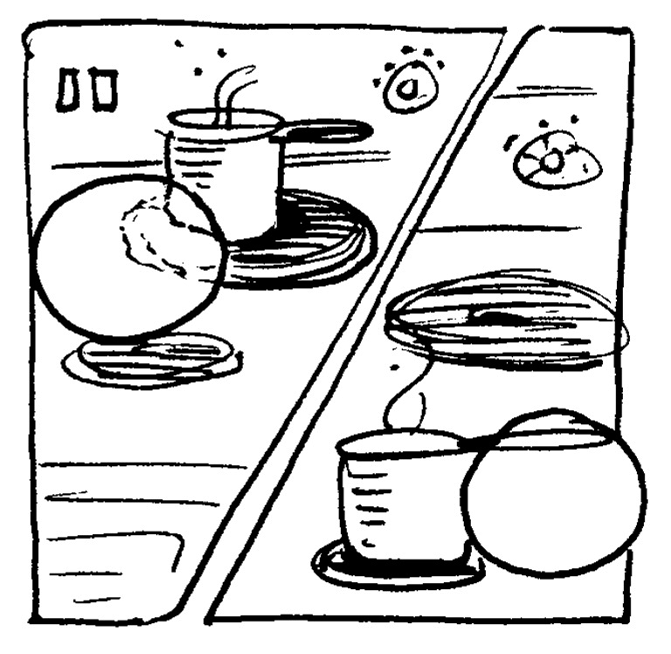
Do not use a big stove-plate to heat up a small pot or saucepan – unused heat is wasted.
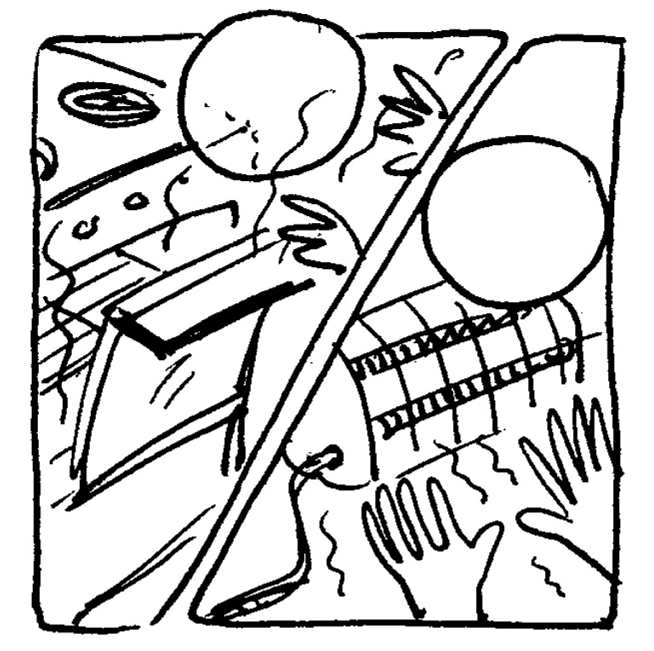
Do not use the stove as a heater – a heater works cheaper.
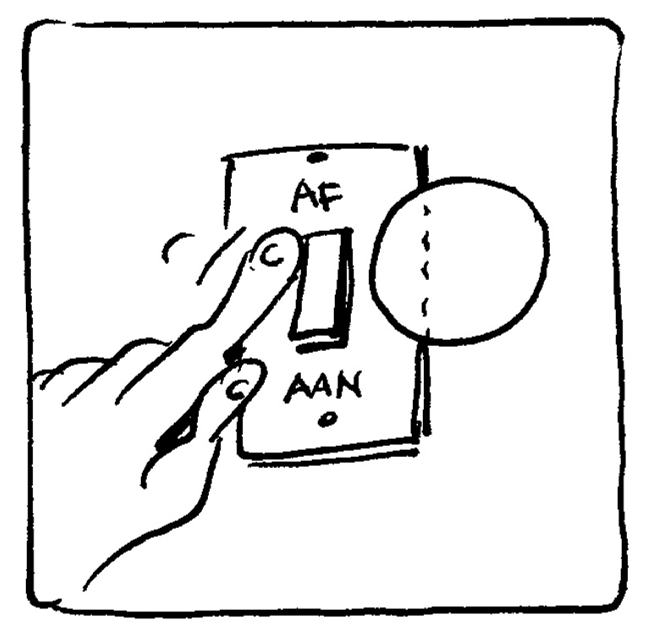
Switch off lights when they are not necessary.
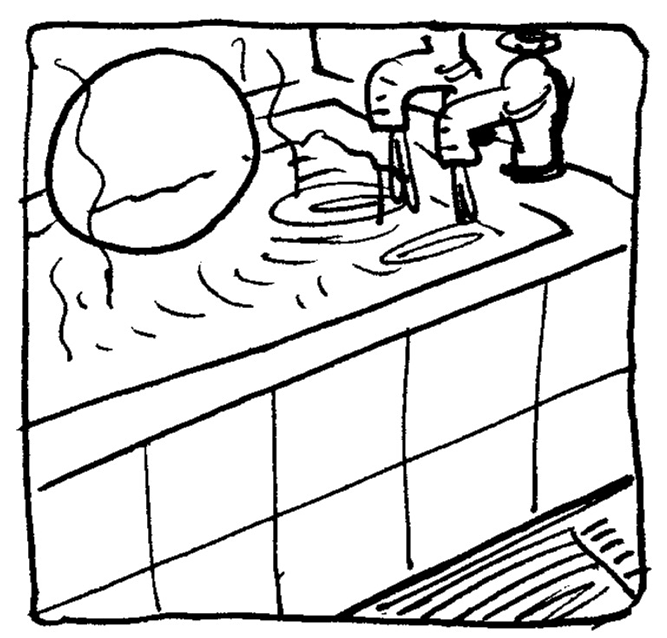
Do not use more than necessary warm water to bath.
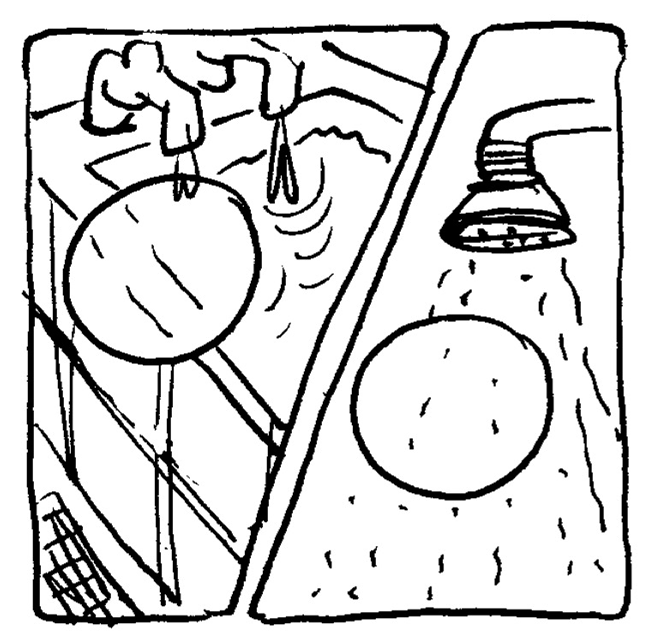
You use less water when you shower than when you bath.

Use cold water to do your washing.
REMEMBER: you pay for the electricity that you waste!
Select a room in your home. Look through old magazines to find and cut out pictures of the appliances that you use most frequently in that room. Advertisements from furniture stores will also be handy for this. Paste the pictures in the space below.

LEARNING OUTCOME 3: SCIENCE, SOCIETY AND THE ENVIRONMENTThe learner will be able to demonstrate an understanding of the interrelationships between science and technology, society and the environment.
Assessment Standard
We know this when the learner
3.2 understands the impact of Science and Technology.
How to conserve (save) electricity:

Notification Switch
Would you like to follow the 'Natural sciences grade 4' conversation and receive update notifications?